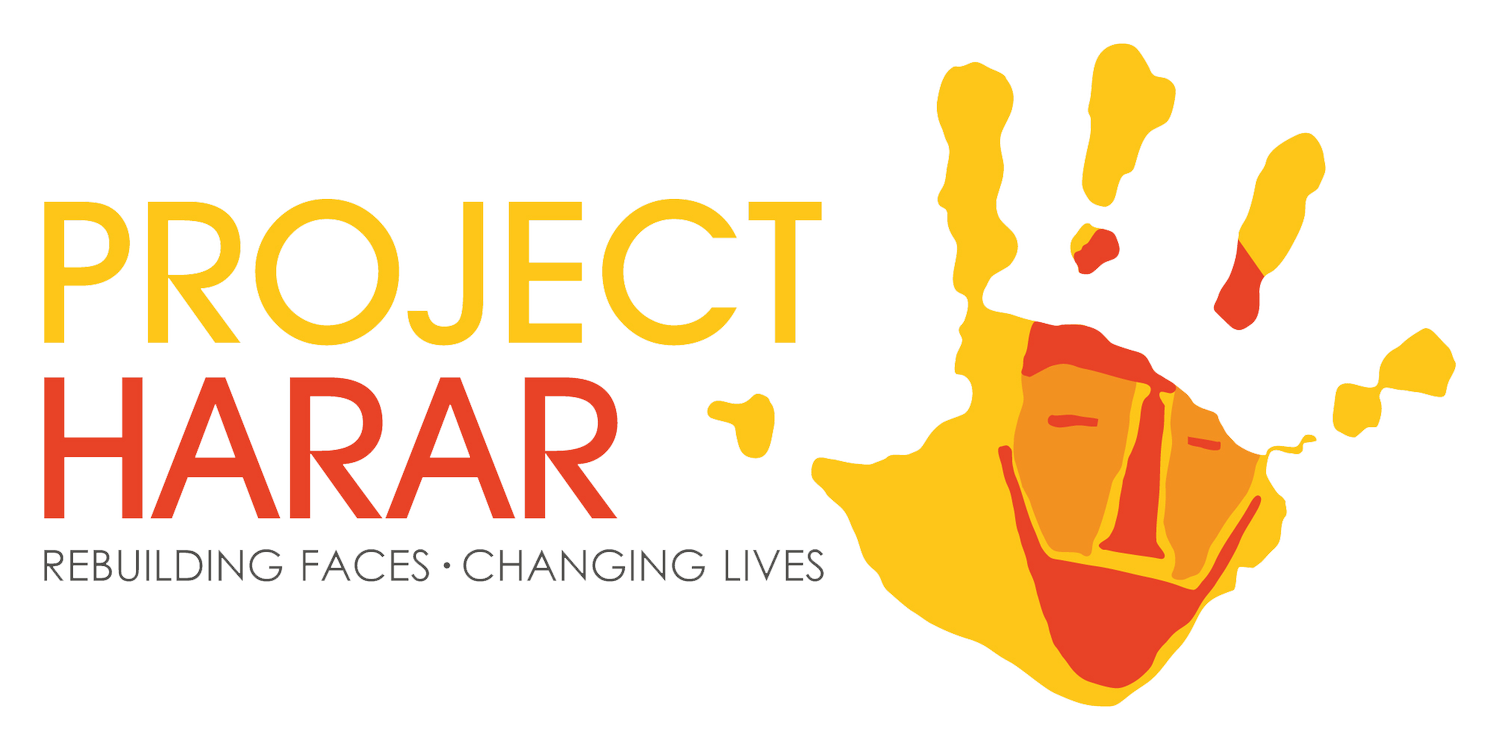Complex Facial Disfigurement
What is facial disfigurement?
Facial disfigurement can range from trauma injuries, such as burns and animal attacks, to large tumours and genetic conditions that create visible difference in the appearance of an individual.
In rural and remote areas of Ethiopia there are numerous barriers to people accessing treatment and medical advice for health issues. Some rural communities are located in geographically challenging areas, such as in mountainous terrains, or they might just be very far away from a town or city that has a health clinic. Families living in rural and remote areas are often financially disadvantaged and will not have the means to pay for travel to a medical facility or to finance treatment.
Limited access to medical professionals means limited health monitoring, so facial disfigurements such as tumours, can escalate to very large sizes. There are also environmental factors that can cause and escalate facial disfigurement, for example limited access to nutrition. Rural areas of Ethiopia are often prone to an insecure food environment. Flooding and drought can ruin crops, which, as well as food are often the source of a families income.
There is great stigma attached to facial disfigurement in rural areas, individuals are often excluded from their communities and are the subject of bullying. Strong religious or spiritual belief can lead some communities to believe facial disfigurement is a divine punishment and subsequently individuals are hidden away from others, excluded from society and often children will not be able to join school, or have to drop out of education.
Some complex facial disfigurements are life threatening and the majority cause pain, discomfort and problems with eating, drinking, breathing and speaking.
Our Programmes
Prior to the onset of the Covid-19 pandemic Project Harar would run an annual complex surgical programme. The programme has helped hundreds of people from the most remote areas of Ethiopia receive life changing facial surgery. The programme has also contributed to knowledge sharing though collaboration with Yekatit-12 Government Hospital Addis Ababa. Face-to-face collaboration opportunities were facilitated between Yekatit-12 and medical specialists who work in the filed of head and neck from around the world - representing Project Harar.
The onset of the Covid-19 pandemic has meant we have had to adapt the delivery of our programme. We are currently delivering a Virtual Volunteering Programme with the support of THET (Tropical Health and Education Trust).


